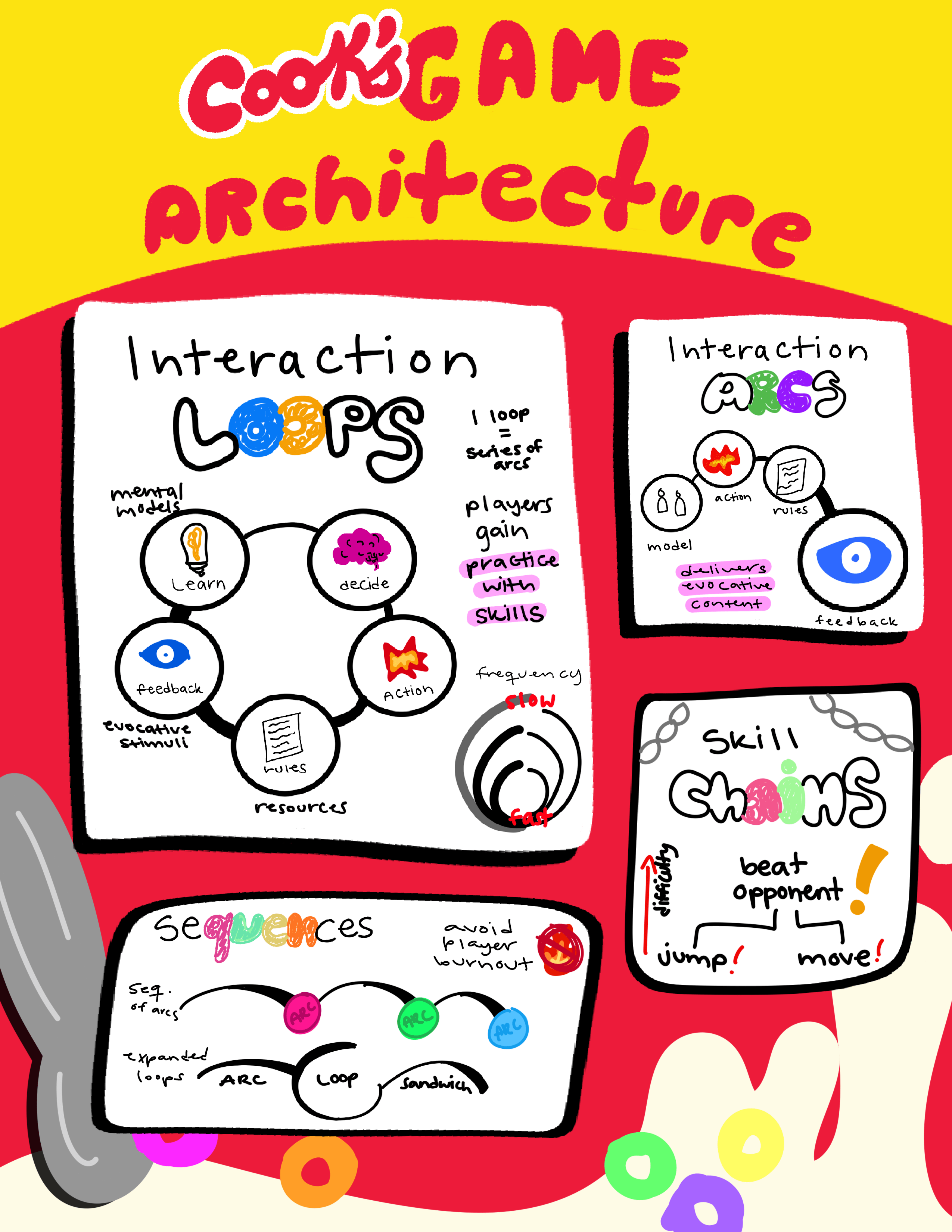Over the last few years we have seen the rise of "serious games" to promote understanding of complex social and ecological challenges, and to create passion for solving them. This project-based course provides an introduction to game design principals while applying them to games that teach. Run as a hands-on studio class, students will design and prototype games for social change and civic engagement. We will learn the fundamentals of games design via lecture and extensive reading in order to make effective games to explore issues facing society today. The course culminates in an end-of- quarter open house to showcase our games. Prerequisite: CS147 or equivalent. 247G recommended, but not required.




The “Last of Us” game architecture employs several skill loops. For example, as the game progresses players learn to manage their resources by collecting ammunition and crafting materials for injuries. The loop involves searching different environments and deciding what to store vs. leave behind. They get feedback on what they’ve done right in combat. Each player decision builds their understanding of scarcity and what items are crucial for survival. There are also combat loops where the game forces players to engage with enemies and they either succeed and move forward or they fail and have to restart, learning along the way. These loops happen at different frequencies where there are fast combat loops as opposed to a more slower paced exploration of environments for resources.
There are numerous character development arcs as both the main character, Joel, and the person traveling with him, Ellie, undergo personal growth through cut-scene dialogue and meeting other characters throughout the story. There are life and death decisions that challenge the character’s morality and at the end of the game, the player has become incredibly invested in the growth of the main characters and better understands the game world.